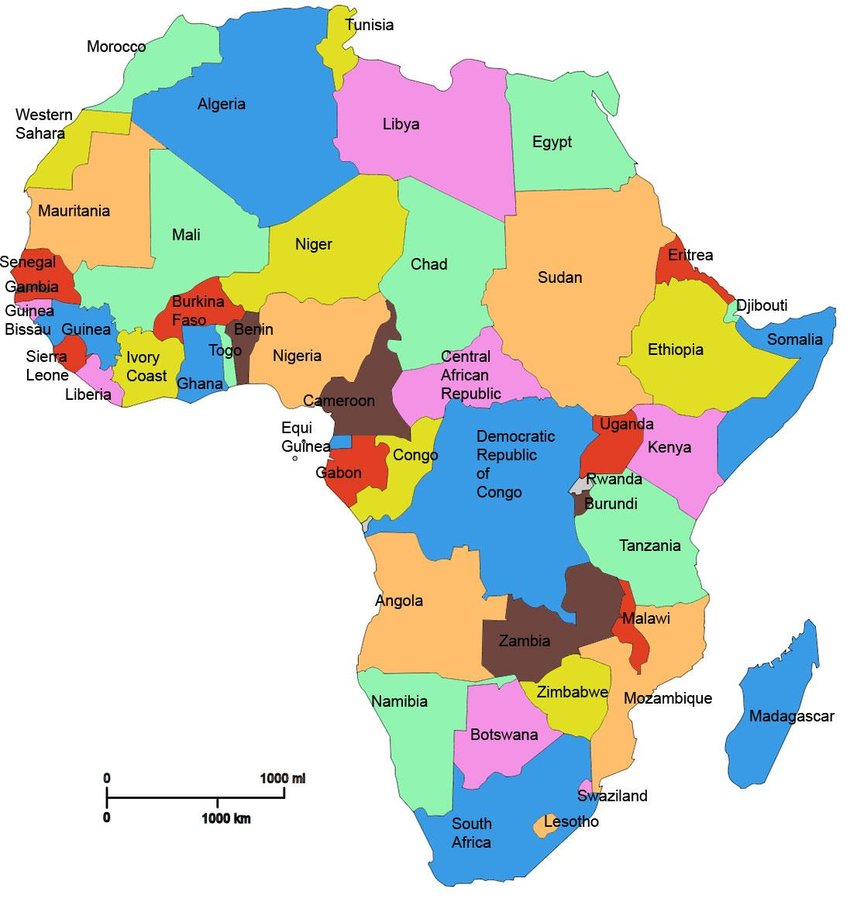This year’s G7 leaders’ summit, which began Monday in Schloss Elmau in the Bavarian Alps is taking place at a time of great global upheaval and uncertainty.
Every year, the country holding the G7 presidency invites partner countries to attend parts of the summit. This year, Germany invited Senegal, which holds the rotating chair of the African Union (AU), Argentina, India, Indonesia and South Africa.
- Street sweepers protest non-payment of 3-month salaries in Gombe
- Disquiet in Lagos PDP over choice of deputy governorship candidate
The war in Ukraine erupted just as the global economy was beginning to recover from the devastation of the COVID-19 pandemic. From an African perspective, the G7 Leaders’ Summit must focus on the immediate and urgent need to end the war in Ukraine, but the G7 must also address the unfolding multiple crises from Cape Town to Cairo.
Africa has warned that it has a significant infrastructure gap that must be closed to facilitate the AU’s effort at an African renaissance with its 15 flagship projects. The G7 has a present and historical duty to assist by drawing on their financing commitments for Africa. A reminder that Africa contributed just three per cent of global emissions but is already dealing with the unaffordable impacts of a changing climate on infrastructure, communities and livelihoods, driving further inequality.
The question is whether the G7, under Germany’s leadership, will turn years of talk into meaningful, just and sustainable action.
As a result, climate change is no longer a buzzword; COP26 was about what the world must do to avert, reverse and mitigate the climate crisis and how it will fund such efforts. With Africa broadly lagging far behind industrially and with a significant infrastructure gap, unending illicit financial outflows, and minimal access to advanced technologies, some still expect a just transition to be accepted by all and move smoothly with successful outcomes.
Very little has been forthcoming by way of genuine development partnerships on the part of the G7. By this, I am referring to a departure from aid politics and relations to something more innovative and revolutionary as the fourth industrial revolution itself. I am referring to investment and partnerships that would trigger hastened sustainable industrial growth and development in Africa that the AU in its Agenda 2063 is pushing for, as well as industrialisation more broadly to realise the UN’s Agenda 2030 to avoid, reverse, or mitigate the poly pandemic.
Germany has a role to play if it wants to. Many argue that Foreign Direct Investment in Africa is key to sustainable recovery and growth. Indeed, fresh funds imply the erection of factories, stimulation of sustainable industrial development, research and development, employment creation and sustainable livelihoods and value addition to commodities in the case of African minerals and divestment from fossil fuels and investment in renewable energy.
German investment in Africa stood at one per cent of its total external investment in 2018. Last year, the G7, hosted by the UK, pledged to invest $80-billion in Africa.
There is potential for mutual benefit for Germany and Africa in German foreign direct investment, as with G7 FDIs in Africa. This case has been made by African, broader margins and developed economies leaders many times over. The recent tour of Africa by German Chancellor, Olaf Scholz, six months into his term of office, attests to the importance both parties attach to this relationship. One continuing from former Chancellor Angela Merkel in 2018, just before the pandemic, is evidence of a positive trend over the last four years.
But the plight of Africa for COVID vaccines, vaccine nationalism, and slow and ultimately muted resolutions on the TRIPS waiver proposals have made things difficult for Africans. The slow and minimal assistance in developing local pharmaceutical manufacturing capacity on the continent has not added as much enthusiasm and hope as a genuine development partnership could have.
According to Germany, they want to use their presidency of the G7 to foster a “Sustainable planet, healthy lives, investment in a better future and a world that is stronger together.”
But to date, the G7, as a collective, has failed to take the action needed. For example, the G7 failed to assist meaningfully with vaccine access and other measures to mitigate the economic impact of the pandemic on Africa and its effects on its people.
G7 leaders can listen to the science and should affirm their commitment to an inclusive finance, preparation and prevention approach to global health challenges. To avoid repeating the current unequal and unjust response that keeps life-saving medicines, technologies and recipes to produce them out of reach to African countries.
In addition, the G7 and the G20 committed to reallocating $100bn of Special Drawing Rights out of $650bn to help the International Monetary Fund member countries facing economic crises.
However, to date, African countries received roughly $33bn. For comparison, the US received $113bn and the $100bn, which African countries desperately need, has yet to be reallocated.
The G7 has promised much to Africa through endless so-called aid offerings. For decades, G7 leaders have pledged to allocate 0.7 per cent of their respective countries (GNI) to international aid to support Africa and other continents in need.
However, Global Citizen reports that by 2021, G7 countries did not even reach half of that and collectively provided 0.32 per cent. More concerning is that even if this “aid” arrives often, it is counteracted by African countries’ trade deficits and illicit financial flows. Africa needs development partners who care about its citizens’ environment, climate and economic and social wellbeing.
Any development support that ignores Africa’s post-colonial challenges relating to trade, food sovereignty and energy sovereignty will merely deepen Africa’s economic challenges. The G7 can be genuine partners to Africa.
To do this, the G7 must invest in a global financial and trade architecture that enables African countries to produce their own food and energy to meet their domestic needs, facilitate technological transfer to enable sustainable essential manufacturing and industrial activity and invest in public education, research and development. This will support real, sustainable, productive jobs and livelihoods on the continent.
The G7 summit will come and go, as many have done. But this summit presided by a presidency that has professed a genuine interest and intent for development partnership stands a chance to leave something more memorable.
What can it leave behind? For starters, a positive resolution on special drawing rights assistance for Africa, interventions on illicit financial flows and encouragement of investments through effective, sustainable development partnerships.
Source: Mail & Guardian

 Join Daily Trust WhatsApp Community For Quick Access To News and Happenings Around You.
Join Daily Trust WhatsApp Community For Quick Access To News and Happenings Around You.


